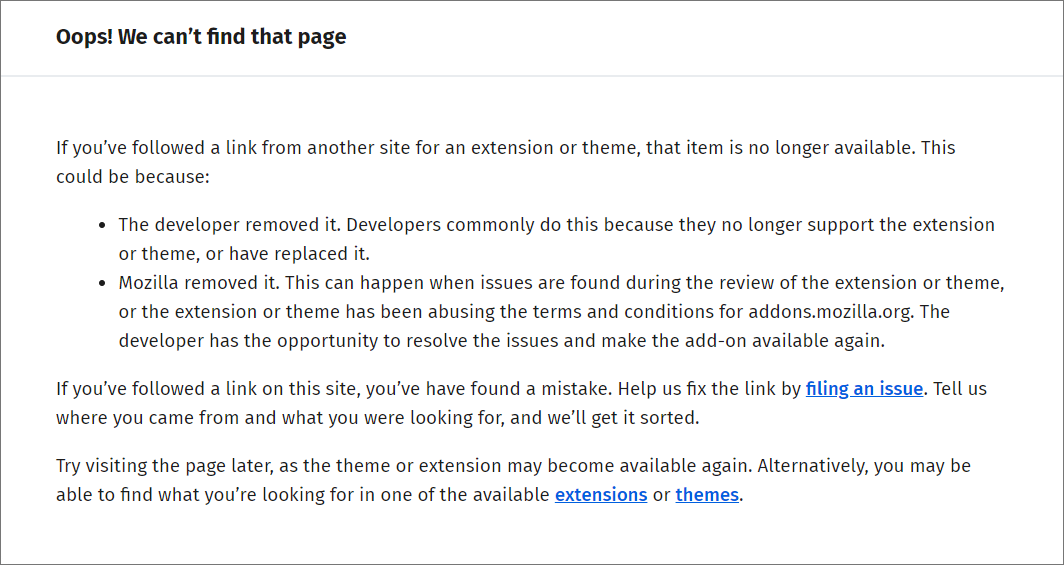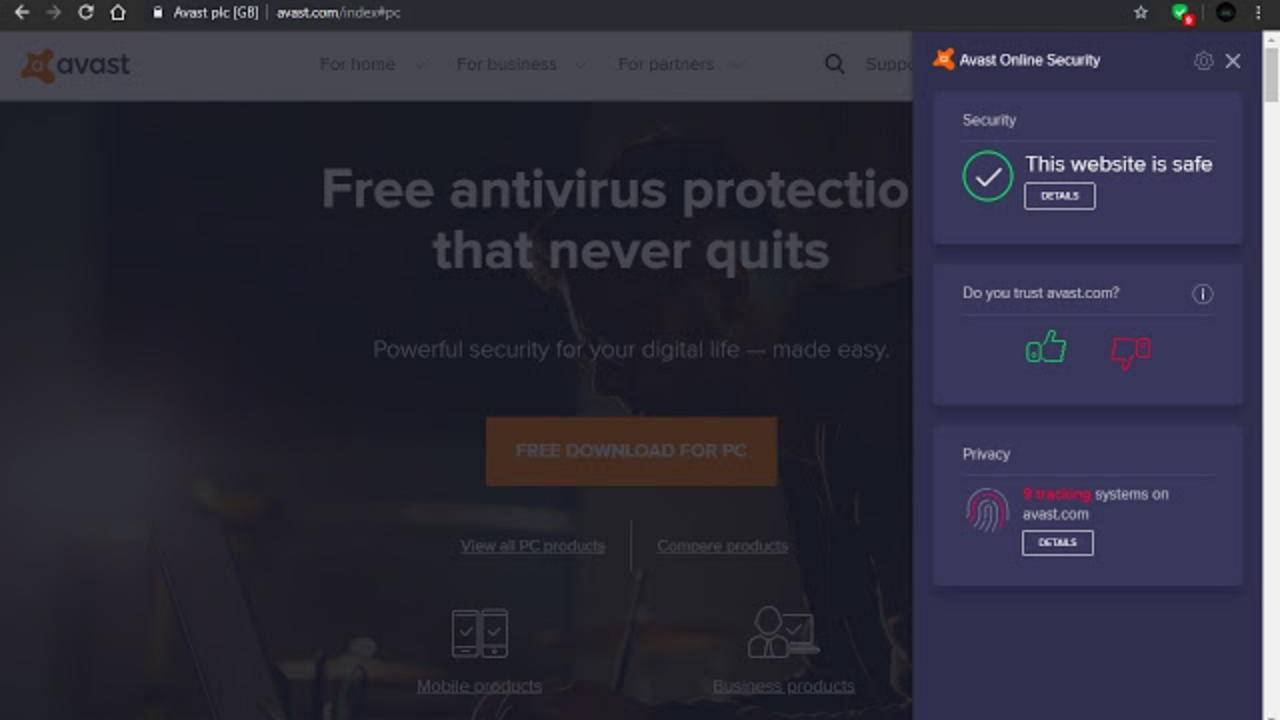

#Avast firefox website not secure install#
However, I’m a few orders of magnitude more cautious than most people: I don’t allow JS to run in my browser, I don’t install or run programs that I have the slightest bit of doubt about, I pay close attention to where the code is coming from, and my network is chock full of various defenses, some of which would notice if malware started trying to phone home. I’ve not personally used an AV product for about 30 years, and that has never caused a problem for me. The problem with AV products is that they are extremely intrusive (they have to be, in order to do their job) and can cause a number of hard-to-diagnose problems. If you change this to not be web-specific, then I agree entirely. “Realistically, there’s no substitute for commonsense, safe browsing techniques.” It’s not strictly true - there are a number of AV products that are objectively superior to Defender, but there’s a real question about whether or not the additional protection is actually useful.
I used to work for a major security company that had a mainstream AV product (although I didn’t work on the AV product).
#Avast firefox website not secure windows#
The extensions are still available for Google Chrome at the time of “It’s not that Windows Defender is so amazing, it’s that all antivirus programs are more or less equally bad.” Possible scenarios are that Mozilla will add the extensions to the blocklist that it maintains or will request that Avast makes changes to the extensions before they are reinstated. Mozilla is in talks with Avast currently according to Wladimir Palant. The company states in its privacy policy that it uses anonymized Clickstream Data for "cross-product direct marketing, cross-product development, and third-party trend analytics. Palant concluded that the collecting of data was not an oversight. All that is connected to a number of attributes allowing Avast to recognize you reliably, even a unique user identifier. Tracking tab and window identifiers as well as your actions allows Avast to create a nearly precise reconstruction of your browsing behavior: how many tabs do you have open, what websites do you visit and when, how much time do you spend reading/watching the contents, what do you click there and when do you switch to another tab. The data collected here goes far beyond merely exposing the sites that you visit and your search history. On search pages, every single link on the page is submitted as well. Data is submitted when pages are opened but also when tabs are switched. The extensions include the full address of the page, the page title, referer, and other data in the request. He discovered that Avast's extension transmitted data to Avast that provided Avast with browsing history information. The data that the extension submits exceeded what is necessary to function according to Palant. Wladimir Palant, creator of AdBlock Plus, published an analysis of Avast extensions in late October 2019 on his personal site. Mozilla added several dozen extensions for Firefox to the blocklist on Decemwhich collected user data without disclosure or consent, but Avast's extensions are not on the list. It’s important to us that users understand that we’re listening to concerns about transparency and data use, and striving to do better and lead by example in this area.“ Our browser extensions Avast Online Security and AVG Online Security are back on the Chrome Store, and on the Mozilla Store (since 12/17).

We made changes to our extensions including limiting the use of data and these changes are explained clearly in our Privacy Policy. We are listening to our users and acknowledge that we need to be more transparent with our users about what data is necessary for our security products to work, and to give them a choice in whether they wish to share their data further and for what purpose. We have never compromised on the security or privacy of personal data. €œPrivacy is our top priority and the discussion about what is best practice in dealing with data is an ongoing one in the tech industry. Avast provided us with the following statement: Update: The extensions are available again. When you try to open one of the Store URLs of Avast or AVG extensions you get a "Oops! We can't find that page" error message. It appears that Mozilla removed these extensions from its Store. Neither Avast Online Security or SafePrice, nor AVG Online Security or SafePrice, are returned by the Store currently even though these extensions exist. If you search for Avast or AVG on the official Mozilla Add-ons website, you may notice that no results by these companies are returned.


 0 kommentar(er)
0 kommentar(er)
